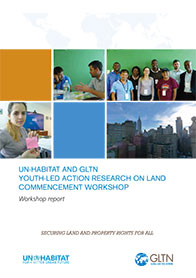Land Tenure Security and Home Maintenance: Evidence from Japan
This paper considers two land tenure modes. leasehold and freehold. and models housing maintenance incentives under land tenure security in Japan. Compared with freeholders, leaseholders are equally likely to remain in the premises, but spend less on home maintenance, because leaseholders are not full residual claimants, even under land tenure security. The empirical results show that maintenance expenditures of leaseholders are about 30% lower than those of freeholders in the Japanese residential land market.








